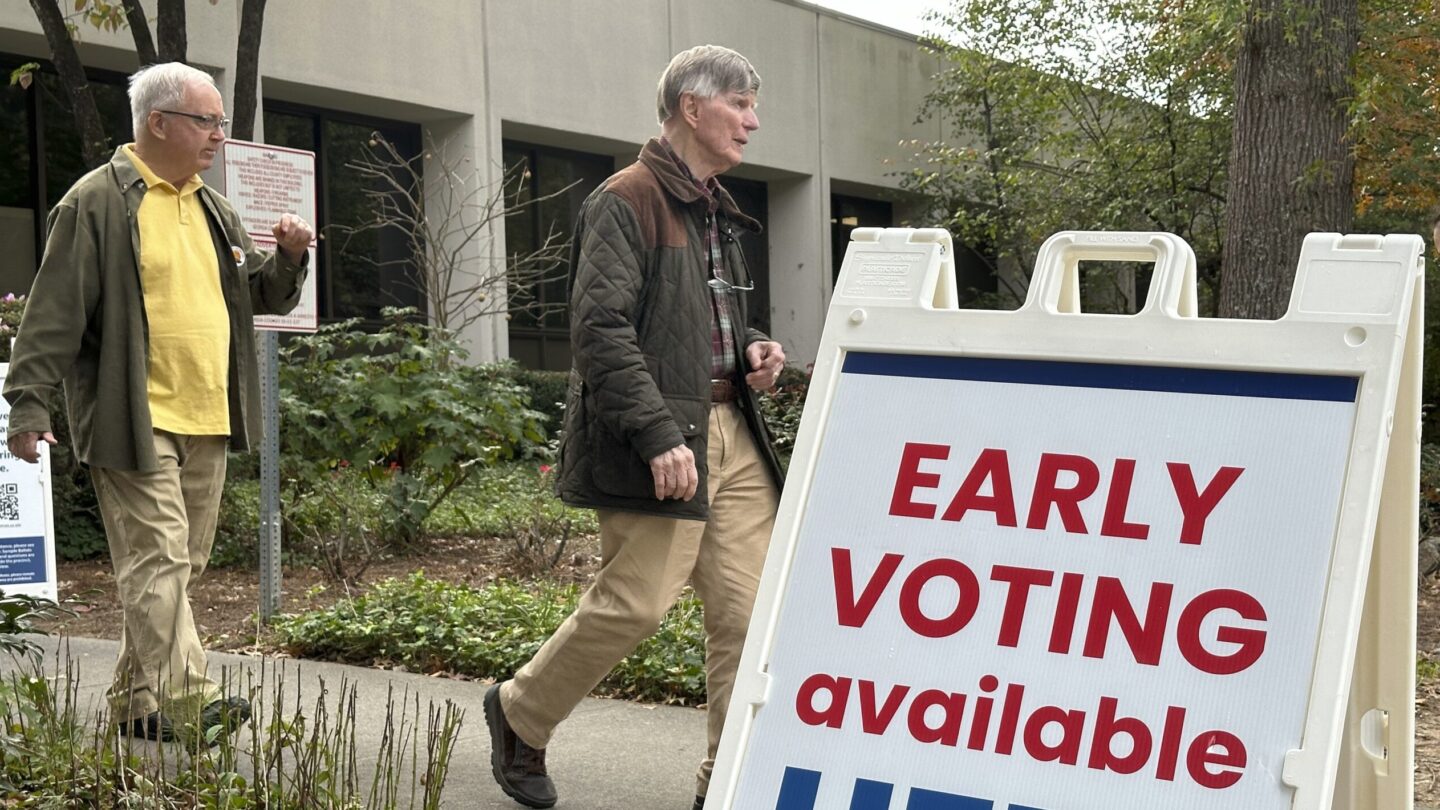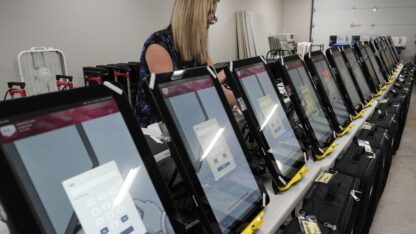The Georgia Supreme Court on Tuesday rejected an attempt by national and state Republicans to immediately reinstate recently passed election rules that a judge had ruled were invalid.
Fulton County Superior Court Judge Thomas Cox last week ruled that the State Election Board didn’t have the authority to adopt the new rules and declared them “illegal, unconstitutional and void.” The Republican National Committee and the Georgia Republican Party had appealed that ruling to Georgia’s highest court and had asked that it be handled in an expedited manner and for the rules to be reinstated while the appeal was pending.
The Supreme Court declined the request for expedited handling and declined to put Cox’s order on hold. The court’s order says that once the appeal is docketed it will “proceed in the ordinary course,” which means it will likely take months before there’s a ruling.
The three-person Republican majority on the State Election Board, which was praised by former President Donald Trump during a rally in Atlanta in August, voted to adopt multiple rules in August and September over the objections of the board’s lone Democrat and the nonpartisan chair. There have been at least half a dozen lawsuits filed in response, each challenging one or more of those rules. Given the tight timeframe with the November general election just weeks away, judges have acted quickly to set and hold hearings in those cases.
Democrats had celebrated Cox’s ruling. They had raised concerns that the rules could be used by allies of Donald Trump to slow or deny certification or election results or to cast doubt on results if the former president loses the presidential election to Democratic Vice President Kamala Harris.
While some prominent Republicans in Georgia, including Secretary of State Brad Raffensperger, have criticized the flurry of last-minute rules the State Election Board introduced, the state and national Republican parties have been supportive of the board. They have said the rules promote transparency and accountability in the state’s elections.
Cox’s ruling came in a lawsuit filed by Eternal Vigilance Action, an organization founded and led by former state Rep. Scot Turner, a Republican. The suit argued that the State Election Board overstepped its authority in adopting the seven rules. In addition to invalidating the rules, he ordered the State Election Board to immediately inform all state and local election officials that the rules are void and not to be followed.
But an earlier ruling from Fulton County Superior Court Judge Robert McBurney in a separate case temporarily blocked a rule requiring that three poll workers each count the paper ballots — not votes — by hand after the polls close. McBurney blocked the rule while he considers the merits of that case, saying it was too close to the general election and implementing that new rule at this point would cause chaos.
Two other new rules that Cox invalidated were passed by the State Election Board in August and have to do with certification. One provides a definition of certification that includes requiring county officials to conduct a “reasonable inquiry” before certifying results, but it does not specify what that means. The other includes language allowing county election officials “to examine all election related documentation created during the conduct of elections.”
The other rules Cox said are illegal and unconstitutional are ones that:
— Require someone delivering an absentee ballot in person to provide a signature and photo ID.
— Demand video surveillance and recording of ballot drop boxes after polls close during early voting.
— Expand the mandatory designated areas where partisan poll watchers can stand at tabulation centers.
— Require daily public updates of the number of votes cast during early voting.










